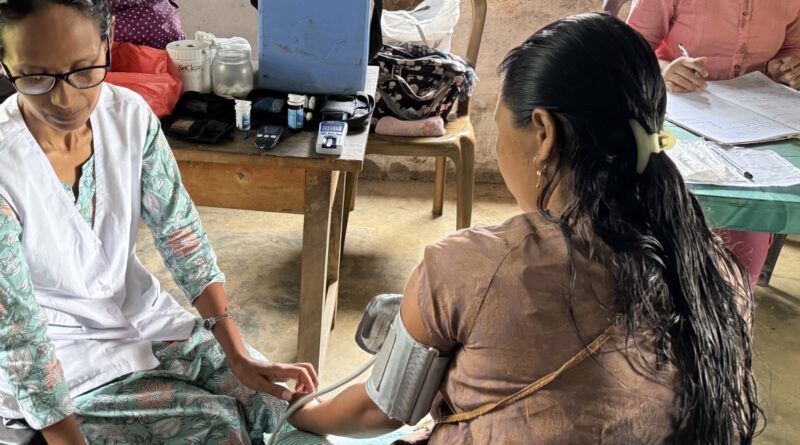Current and Future Perspectives for Primary Health Care in South Asia | Johns Hopkins Bloomberg School of Public Health
South Asian countries face many common health problems due to non-communicable diseases, aging populations, rapid urbanization, socioeconomic inequality, and low spending on community for health. Health systems that focus on primary health care can serve as a cost-effective strategy to address these problems in South Asia and other low- and middle-income countries.
New series published on Lancet Global Health and The Lancet Regional Health Southeast Asia draws on the implementation of health care programs in five countries: Bangladesh, India, Nepal, Pakistan, and Sri Lanka. A worldwide event organized by The Lancet Review of courses from the series will be held on October 1, 2024 at 9 am EDT.
The series is organized by Krishna D. Rao, PhD ’04, MSc, assistant professor of International Health, and offers suggestions for improving primary health care in South Asia. Major themes of the series include: the growing burden of non-communicable diseases, which disproportionately affect vulnerable populations; urban population growth, resulting in economic and living inequality; and the central role that public health workers play in improving the lives of citizens and the importance of investing in them.
Non-communicable diseases: This region has a high burden of non-communicable diseases, such as heart disease, diabetes, cancer and chronic respiratory diseases, as well as many modifiable risk factors, such as the use of tobacco and alcohol, unhealthy diet, and physical inactivity. work. Although there is a political commitment to tackle NCDs across the region, there are challenges to doing so, such as a lack of staff and essential medicines, as well as a lack of funding. The authors emphasize the inclusion of NCDs in the primary care system by implementing early detection of NCDs at the primary care level, providing funding for uninterrupted supply of essential NCD drugs and technologies which can be provided in primary care facilities, and improve the capacity of health workers to care. for NCDs.
Healthy urban life: South Asia is rapidly urbanizing. Its cities are often challenged to provide health care or healthy living and working conditions for all residents. Large health inequalities characterize the region’s cities. Addressing these challenges in primary health care requires a multi-sector response with well-equipped urban areas, such as housing and sanitation, and increased public funding for care. of life. “Strategies should ensure quality services and financial security through the expansion of public services and collaboration with private providers, especially those serving low-income people,” says Rao, first author on a paper on urban health. Lancet series.
Community health workers: Community health workers are the backbone of health service delivery. Current and future health challenges in South Asia require further changes in community health worker (CHW) programs. However, in many South Asian countries, CHWs are illegal within health systems and are not treated or paid adequately as health workers. Strengthening CHW programs in South Asia requires adequate, dedicated, and sustainable public funding, supporting work practices that promote professional development, providing a clearer definition of roles and responsibilities, and better integration of health care workers.
The series concludes with nine action points for policy- and decision-makers to align health systems to primary health care:
- Developing policies on primary health care.
- Adding new features.
- Allocation of adequate funds.
- To strengthen the governance of the health sector.
- Creating meaningful public and private conversations.
- Using digital health tools.
- Reorganizing service delivery.
- Enabling effective change-management processes
- To encourage self-directed research.
Finally, multiple research networks on primary health care in South Asia can generate evidence, strengthen advocacy, and provide spaces for learning and exchange.
#Current #Future #Perspectives #Primary #Health #Care #South #Asia #Johns #Hopkins #Bloomberg #School #Public #Health
